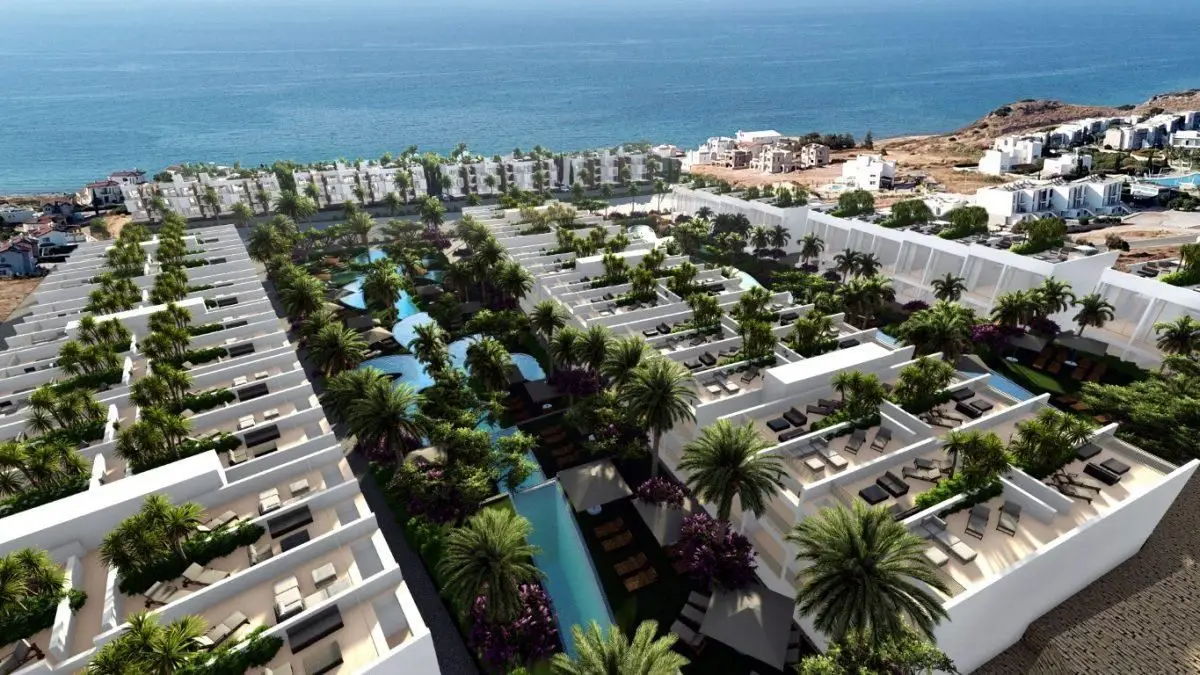The question of whether it is worth moving to Greece is heard more and more often not only among those who dream of the sea, but also among pragmatists looking for a balance between comfort, stability and the cost of living. The country is no longer just a resort: it has become a stage where the scenario of a new life is increasingly being played out – with a European background, oriental rhythm and southern flavour. Analyse below, using concrete figures and realities.
Geography of comfort: climate and ecological environment
The answer to the question of whether it’s worth moving to Greece starts with the climate. 300+ days of sunshine a year, mild winters, dry summers, with average temperatures of around +10°C in January and up to +34°C in August. Humidity rarely exceeds 70%, making even the hot months bearable.
Attica, Crete and Rhodes offer not only a comfortable climate, but also low levels of air pollution by European standards. In the Peloponnese, the level of suspended particulate matter in the air does not exceed 25 µg/m3 (according to Eurostat), which is below WHO standards.
Economic background: work and costs
 To soberly answer whether it is worth moving to Greece, it is necessary to take into account the local labour market. The average salary is around €1100 per month (2024), with the minimum wage set at €910. The unemployment rate has fallen to 10.4 per cent, but regional disparities remain: Athens and Thessaloniki offer more opportunities, while islands and provinces suffer from seasonality.
To soberly answer whether it is worth moving to Greece, it is necessary to take into account the local labour market. The average salary is around €1100 per month (2024), with the minimum wage set at €910. The unemployment rate has fallen to 10.4 per cent, but regional disparities remain: Athens and Thessaloniki offer more opportunities, while islands and provinces suffer from seasonality.

Prices for basic products and services are lower than in most Western European countries. Example: a basket of 12 categories of goods in Athens (milk, bread, vegetables, meat, household chemicals, etc.) is about €170. The cost of renting a flat in the centre is from €500, on the outskirts – from 300.
Utility costs (electricity, water, internet) average €120-160.
Welfare, infrastructure and medicine
Understanding whether it is worth moving to Greece is impossible without analysing the healthcare sector. Public clinics operate according to European standards, but are often overloaded. Private medical centres offer quality services for reasonable money: an appointment with a specialist – €30-60, insurance policy – from €50 per month.
The transport network is unevenly developed. In Athens – metro, trams, buses. In other regions – emphasis on personal transport. Petrol costs about €1.90/litre.
Communication is stable: mobile internet – €10-15 for 10-20 GB, home internet – from €25 per month.
Cultural characteristics
When deciding whether to move to Greece, mentality is important. The high level of trust in society is combined with the slowness of administrative processes. Greeks value personal space, but do not avoid contacts. The style of communication is direct, emotional, but without aggression.
Integration is easier through language. Greek is not the most difficult for Slavs in terms of grammar. Mastery of English is enough at the start, especially in tourist and educational spheres.
Real estate: buying, renting and investing
Interest in buying property in Greece continues to grow. The average cost of a square metre in Athens is about €2200, in Thessaloniki – €1500, on the islands – from €2800.
The purchase of real estate gives the right to residence permit under the programme “golden visa” with investments from € 250 000. The programme is valid in Athens and Crete, while in Santorini and Mykonos the threshold is €500,000.
Investments in real estate provide yields of 4-7% per annum, especially in the short-term rental segment.
Legal aspects and long-term perspectives
Immigration to Greece requires a clear understanding of the conditions. For third country nationals, options are available on the basis of investment, freelancing, student visas or family reunification. Permanent residence is possible after 5 years of continuous residence.

Bureaucratic processes take time: registration of residence permit – 2-4 months, obtaining citizenship – from 7 years. But the level of control is lower than in France or Germany.
Pros and cons from the eyes of those who have moved away
According to the feedback from those who have moved to live in Greece, the way of life is pleasing in its simplicity. The slow pace of life reduces stress, and the sea and mountains are available at any time. The reviews also point out difficulties: high VAT (24%), seasonal water cuts on the islands, poor digitalisation of public services.
Pros of moving to Greece:
- Loyal requirements for obtaining a residence permit.
- Moderate food and housing prices.
- A simple, comfortable rhythm of life.
- Diversity of climatic zones.
- Potential for property investment.
The cons of moving to Greece:
- Difficulty finding a high-paying job.
- Bureaucratic inertia.
- Slow development of digital services.
- Seasonal overloading of infrastructure on the islands.
- Relatively high property taxes.
The balance between attractive living conditions and internal constraints forms an ambiguous image of the country. Despite the pros, each step requires an accurate assessment of personal priorities and a willingness to adapt to the local rhythm. The ability to balance expectations with reality is key.
Country in figures
The country has an area of 131,957 km². The population is about 10.3 million. As of 2024, the inflation rate is stabilised at 3.1% and GDP per capita is about €21,000.
Immigration to Greece has increased since the pandemic. In 2023, the country issued more than 13,000 new residence permits, of which 40 per cent were for real estate.
Whether it is worth moving to Greece: conclusions
 The answer to the question whether to move to Greece depends on expectations and goals. For investors – a window with reasonable rates and simplified access to residence permits. For remote professionals – a chance to live by the sea with low costs. For families – a chance to raise children in an environment with a mild climate and a moderate pace. The country offers a balanced format confirmed by statistics, examples and testimonials.
The answer to the question whether to move to Greece depends on expectations and goals. For investors – a window with reasonable rates and simplified access to residence permits. For remote professionals – a chance to live by the sea with low costs. For families – a chance to raise children in an environment with a mild climate and a moderate pace. The country offers a balanced format confirmed by statistics, examples and testimonials.
 en
en  de
de  ar
ar  es
es  nl
nl  hi
hi  fr
fr  it
it  pt
pt  el
el 









